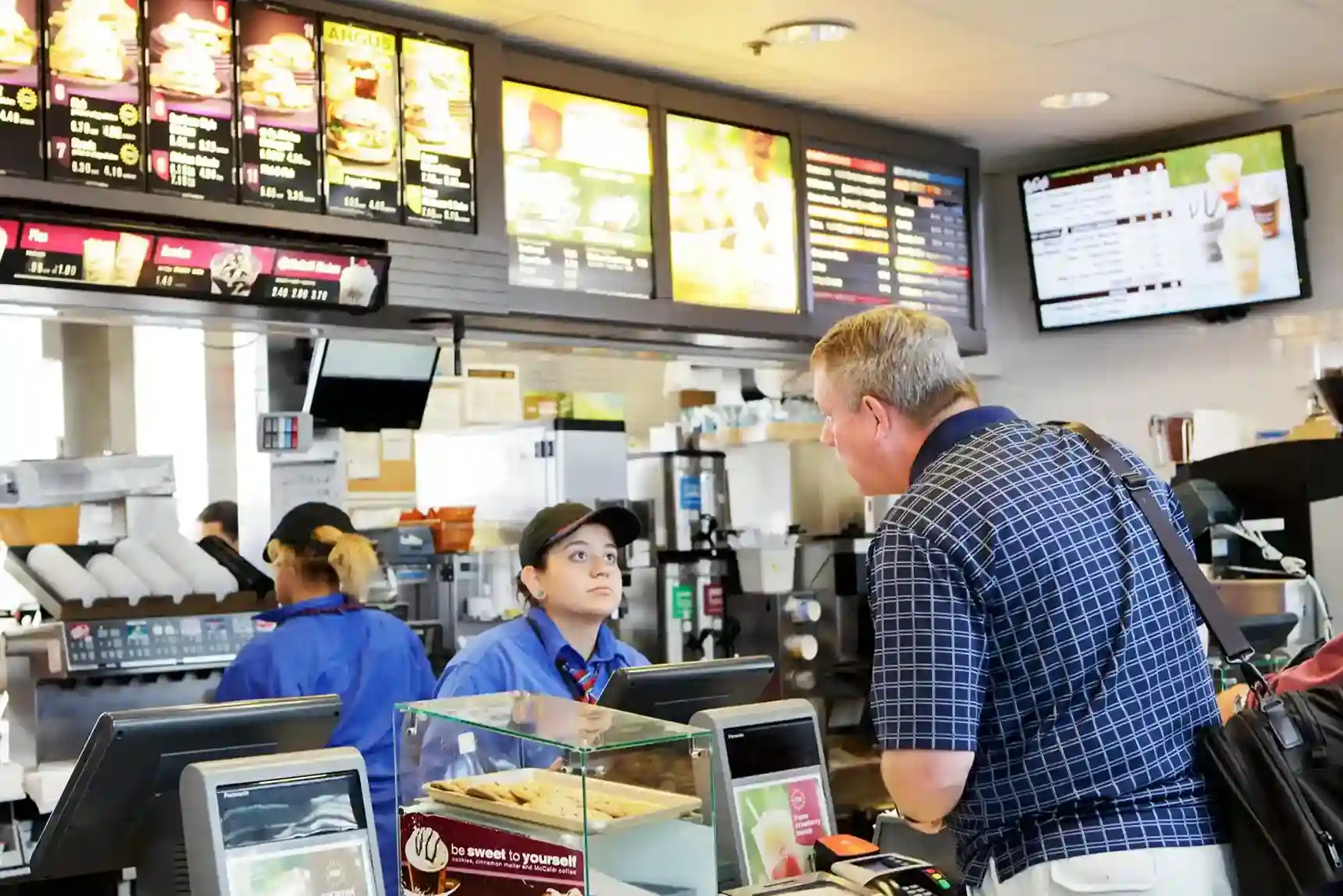As the job market continues to evolve, teens working in fast food in 2024 have become a significant part of the workforce in the United States. Fast food restaurants have long been a stepping stone for teenagers to enter the world of work, offering flexible hours and entry-level positions. However, as the world changes, so too do the experiences and challenges faced by teens in the fast food industry.Delves into the dynamics of teen employment in the fast food sector, exploring why so many teenagers are turning to these jobs, the benefits, challenges, and how the fast food job market is adapting to a new generation of workers.
Why Are Teens Working in Fast Food in 2024?
The Appeal of Fast Food Jobs for Teens
In 2024, teens working in fast food in 2024 is more common than ever before. Fast food establishments have traditionally been a great source of employment for teens due to their accessibility, flexibility, and ease of entry. For many young people, these jobs represent an opportunity to gain work experience, earn money, and develop key skills.
Fast food positions often require little prior experience, making them an ideal choice for teenagers looking to get their first job. The fast-paced, customer-focused nature of these jobs also helps develop communication, teamwork, and problem-solving skills which can benefit teens in future employment opportunities.
Economic Factors Driving Teen Employment in Fast Food

The need for financial independence has always been a driving factor for teens seeking employment, but in 2024, economic factors such as rising living costs and inflation are pushing more young people into the workforce. In some areas, teens may also have to contribute to household income or save for long-term goals like college tuition. As a result, fast food jobs offer a practical solution for many teens looking to earn money while maintaining flexibility for school and extracurricular activities.
Benefits of Teens Working in Fast Food in 2024
Gaining Work Experience
One of the major advantages of teens working in fast food in 2024 is the invaluable work experience gained. Regardless of the job title—whether it’s a cashier, cook, or server—teens are learning real-world skills that will serve them in any career path they choose. These include time management, customer service, teamwork, and problem-solving skills.
For teens looking to build a resume, fast food jobs provide a great starting point. The experience gained from working in a busy environment can demonstrate responsibility and the ability to handle pressure, which are qualities that employers in many industries find desirable.
Flexibility for School and Extracurriculars
Fast food restaurants are well-known for their flexible scheduling, which is another major draw for teens in 2024. These jobs often allow employees to work evenings and weekends, making it easier to balance schoolwork, sports, and social activities. This flexibility is crucial for teens who are trying to manage the demands of their academic lives while also gaining valuable work experience.
Learning Financial Responsibility
Working in fast food gives teens the opportunity to manage their own finances. Whether they are saving for a new phone, paying for their car insurance, or setting aside money for college, these jobs provide a solid foundation for understanding how to budget and save. For many teens, this financial independence is a key motivation for working in fast food.
Challenges Faced by Teens in Fast Food Jobs in 2024

The Impact of Low Wages
One of the main challenges for teens working in fast food in 2024 is the issue of low wages. Despite the value of work experience, many fast food jobs still pay minimum wage, which can be insufficient for covering living expenses in certain areas. This can be frustrating for teens who are working long hours and balancing school responsibilities but still feel that their compensation is not adequate.
In response, some fast food chains have begun offering higher wages or bonuses to attract and retain teen workers, but the issue of pay remains a challenge in the industry.
Workplace Stress and Pressure
Fast food restaurants are often fast-paced environments, and teens working in these settings can experience stress due to long shifts, demanding customers, and the need to work quickly. Teens may also face pressure from supervisors to perform at high levels or meet sales targets, which can contribute to burnout.
While this stress can teach teens how to work under pressure, it can also lead to negative experiences if not managed properly. The high turnover rate in the fast food industry can also be a sign of the challenges teens face in these jobs.
Limited Career Advancement Opportunities
While fast food jobs offer valuable experience, they also have limited opportunities for career advancement. In 2024, many teens work in fast food without the expectation of long-term career growth, and this can be discouraging. Many young workers may struggle with the fact that there is little room for upward mobility, which can lead to frustration.
However, some fast food chains, such as McDonald’s and Taco Bell, have established training programs that allow employees to move into management roles, which can provide more career opportunities for dedicated workers.
Legal Considerations and Labor Laws for Teens Working in Fast Food
Youth Labor Laws and Restrictions
Teens working in fast food in 2024 must comply with federal and state labor laws designed to protect young workers. The Fair Labor Standards Act (FLSA) sets restrictions on the number of hours minors can work, especially during the school year. These laws also regulate the types of jobs that are deemed hazardous for young workers.
In most states, teens under 18 are not permitted to work in certain positions within the fast food industry that involve operating dangerous machinery or performing hazardous tasks. For example, teenagers may not be allowed to work as cooks or dishwashers in certain circumstances due to safety concerns. Employers must be aware of these restrictions and ensure that their teen workers are in compliance with labor laws.
The Importance of Work Permits
In many states, teens under 18 are required to obtain a work permit before they can begin employment. Work permits are designed to ensure that the teen’s work hours and job duties comply with state and federal labor laws. This system helps protect the health and safety of young workers while ensuring that their education is not negatively impacted by excessive work hours.
Employers in the fast food industry must verify that their teen employees have the appropriate work permits before allowing them to work. It is also the responsibility of the teen worker and their parents or guardians to ensure that all necessary paperwork is in order.
Trends in Fast Food Jobs for Teens in 2024
Adapting to Digital Technologies
As the fast food industry continues to embrace technology, many fast food chains are shifting towards digital ordering systems, delivery services, and self-checkout kiosks. This shift is changing the nature of teen employment in the industry, as workers are now required to learn how to operate digital systems, manage online orders, and maintain new technology.
For tech-savvy teens, these changes may offer an exciting opportunity to gain experience in digital technologies and e-commerce. Fast food chains are also increasingly using social media to connect with customers and promote their services, giving teens the chance to get involved in digital marketing and customer engagement.
Diversity and Inclusion in the Workforce
In 2024, there is a growing focus on diversity and inclusion in the workplace, and fast food chains are no exception. Many fast food restaurants are actively working to create more inclusive work environments where teens from all backgrounds feel welcome. This includes providing opportunities for people of all races, genders, and abilities to work in the industry.
Diversity in the workforce helps create a more dynamic and inclusive environment for teens, allowing them to learn from colleagues with different perspectives and experiences. These initiatives are vital for fostering a positive work environment that promotes respect and cooperation among team members.
Fast Food Jobs in 2024 – Key Stats for Teens
| Fast Food Chain | Average Hourly Wage for Teens | Job Positions Available | Opportunities for Advancement |
|---|---|---|---|
| McDonald’s | $11.50 – $15.00 | Cashier, Cook, Crew Member | Management Trainee Program |
| Taco Bell | $10.50 – $14.00 | Cook, Cashier, Customer Service | Shift Supervisor |
| Burger King | $9.00 – $12.50 | Cook, Cashier, Crew Member | Crew Leader, Assistant Manager |
| Chick-fil-A | $12.00 – $16.00 | Cook, Cashier, Server | Supervisor, Team Leader |
FAQs:
What are the benefits of teens working in fast food in 2024?
Teens gain valuable work experience, improve communication and customer service skills, and learn how to manage their finances while maintaining flexibility for school.
What are the challenges teens face in fast food jobs?
Teens may face low wages, workplace stress, and limited career advancement opportunities. However, these jobs still provide important learning experiences for the future.
Can teens legally work in fast food in 2024?
Yes, teens can work in fast food jobs as long as they comply with youth labor laws regarding work hours and job duties. Some positions may have restrictions based on the teen’s age.
How can teens find fast food jobs in 2024?
Teens can apply for jobs directly at fast food locations, search online job boards, or check with local businesses for open positions. Many fast food chains offer applications through their websites.
Teens working in fast food in 2024 is an enduring trend that provides valuable experience, life skills, and financial independence for young workers. While challenges such as low wages and high stress exist, these jobs continue to serve as a vital starting point for teens entering the workforce. Fast food jobs are also adapting to new technologies and providing opportunities for career advancement, making them an attractive option for the new generation of workers.







